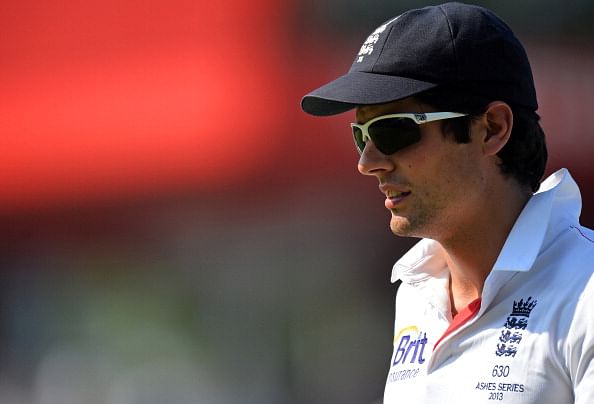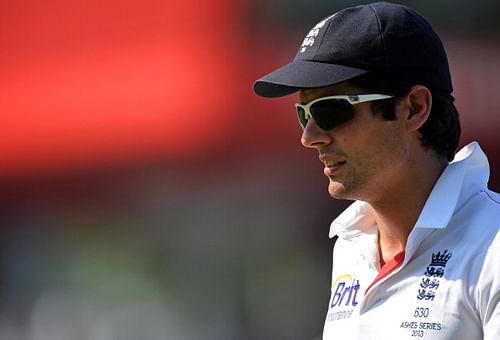
The Ashes 2013: Captain Cook should be more proactive

Alastair Cook needs to find a Plan ‘B’ for England
In cricket, they say, the captain is the boss. The consequences of the moves and changes made by a captain in a game of cricket are far bigger than in any other sport. A cricket captain has more on his plate than his counterparts from other sports.
Most skippers make elaborate plans with the coaching staff and follow them to the tee in a robotic and almost mundane manner on the field. Very rarely they are seen making surprise bowling changes or setting an innovative field. Experimentation isn’t their cup of tea.
Then there are captains who rely on their instincts and regularly manage to pull a rabbit out of the hat. With seemingly ungainly moves, they make things happen for their team which often prove to be the turning points of the match. It’s not that there isn’t any pre-match planning done, but in the face of adversity they are quick to dump their plan A and move to a plan B.
Alastair Cook certainly belongs to the former group of skippers. James Anderson and Stuart Broad with the new ball, Tim Bresnan as the first change looking for reverse swing, Graeme Swann against the left handers and when in doubt go back to Anderson. He has it all chalked out. More often than not, it also works for him due to the quality and variety of the attack, and on better days England appear like a well oiled machine.
But the thing with machines is that even if a single gear or a bearing goes out of sync, the whole assembly comes to a grinding halt. On the first two days of the third Ashes Test at Old Trafford, the conditions – a clear sky and a flat pitch – conspired against the home side attack and once the Australians showed they know how to bat, Cook, in the absence of a back up plan, had no other option than to wait for the batsmen to make a mistake.
With no swing – conventional or reverse – on offer, Anderson, for once in the series, looked mortal. Tirelessly, he kept hitting the good length to get the ball to do something but the lack of response from the wicket rendered him impotent, and he registered his worst figure in an innings – 0/116 in 33 overs.
Broad and Bresnan are honest cricketers, and though they toiled hard, they had just one wicket each in over five sessions to show for their efforts.
Swann, who got some purchase from the pitch, finished with a five-for but two of his scalps were due to mindless slogs by the batsmen and one due to a mindless decision by the third umpire. As the English bowlers struggled to keep the Aussies from piling on the runs, the mood in the hosts’ camp went from being frustrated, to being desperate, to a feeling of helplessness.
Of course, when the conditions are unfavorable and a batsman as good as Michael Clarke is on song, there is very little one can do. But what goes against Cook is his inadequate effort to force things to happen. In the absence of sideways movement he could have asked the seamers to try the short stuff. Broad had twice hit Clarke on the helmet in the Lord’s Test and had made the Australian skipper seem unsettled then.
The under utilization of the part timers, Joe Root and Jonathan Trott, who bowled just five of the 146 overs combined, also betrayed a lack of imagination. On a pitch where Swann asked a few questions, the part time spinning options of Root and Pietersen could have been exploited a bit more.